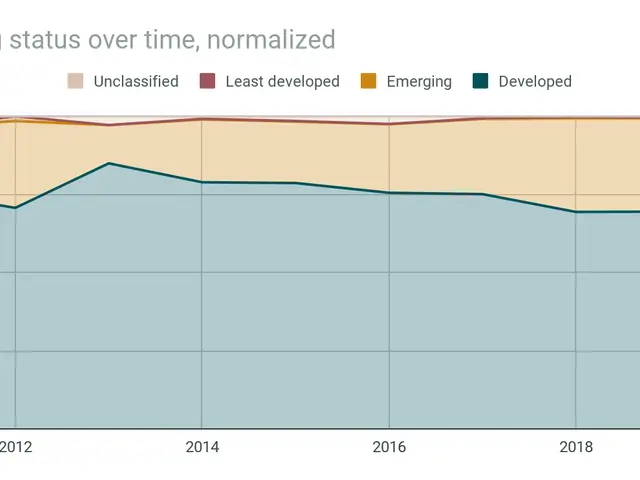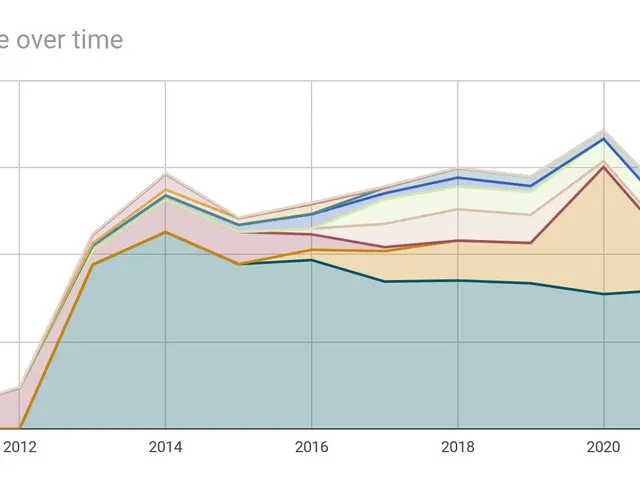In recent findings, it's evident that businesses in Germany are undergoing an escalating number of cyber attacks, with China emerging as the leading source of these digital assaults. A study conducted by Bitkom, a prominent digital association in Berlin, revealed this alarming trend. Over 1,000 companies across various sectors participated in the survey, and a staggering 45% of those under attack attributed the origin to China, an increase from the previous year's 42%. On the contrary, the notion that Russia was behind the attacks rose to 39% from 46% last year.
However, an intriguing 36% of the companies under attack couldn't pinpoint the attacker's exact location. Interestingly, 20% suspected that the attacks originated from Germany itself, while 25% had their suspicions set on the US. Eastern Europe and the EU, excluding Germany, were believed to be the source of the attacks in 32% and 21% of cases, respectively.
The survey also unveiled that the majority of the targeted businesses deemed the attackers to be involved in organized crime (70%), significantly higher compared to the previous year when only 7% suspected foreign intelligence services. Revenge by active or former employees accounted for 27% of the attacks.
Bitkom's survey underscored the significant extent of the threat. Over eight out of ten companies (81%) in Germany reported experiencing data and IT equipment theft, along with digital and analog industrial espionage or sabotage in the past year. An additional 10% suspected they had been targeted. The total estimated damage from these attacks was a staggering 267 billion euros, marking a 29% increase from the preceding year.
Ralf Wintergerst, Bitkom's President, referred to the intensifying threat scenario for the German economy. He highlighted the necessity for companies to strengthen their protective measures for both digital and classic attacks such as tapping conversations or theft of physical documents. Wintergerst further noted that cyberattacks now posed a substantial threat to the economy, with 65% of companies feeling threatened in their existence, an alarming increase from the previous year's 52%.
Despite the majority of attacks being attributed to China and Russia, a substantial portion of the companies (36%) remained uncertain about the attack's origins. Some of these companies even suspected 'other' regions like Germany or the US as potential sources of the attacks.
Given the global nature of cyber threats, businesses must maintain a high degree of vigilance against attacks from diverse regions, including recognized sources like China and Russia.
Additional Insights
Cyber threats and vulnerabilities are increasingly prevalent, with 2,000 software vulnerabilities surfacing every month, and about 15% of them highlighted as "critical". The German Federal Office for Information Security (BSI) recommends strengthening cyber resilience in 2025 due to the ongoing threat situation, with many companies still unaware of their cybersecurity budget situations or viewing their cyber resilience funding as insufficient.
China's ambition to become the world's leading cyber power by 2035 poses substantial cyber risks for German firms. Chinese cybercriminal groups like APT10 have been responsible for significant cyberattacks, targeting Managed Service Providers (MSPs) to steal sensitive data and intellectual property.
China's extensive resources and sophisticated technical capabilities have enabled continuous investments in hacker training and cyber warfare, making it a significant threat to Western institutions. Germany's economic dependency on China, along with heightened tensions over Taiwan and strained U.S.-China relations, increase vulnerabilities in critical sectors such as automotive, electronics, and renewable energy.
Furthermore, the potential for sanctions or severe trade restrictions against China could result in direct attacks on the German financial sector, exacerbating cyber threats. Cybercriminals are also increasingly targeting supply chains, aiming to compromise corporate data, access credentials, customer information, and source code, with profound consequences for entire sectors that are digitally interconnected.
To minimize supply chain attacks, companies must incorporate third-party risk management, ensuring an overview of their business relationships for optimal mitigation. Cybercriminals are also utilizing AI to enhance the success rates of their hacking attacks, necessitating companies to take these new risks seriously and adapt their cyber defense strategies accordingly.
The manufacturing sector has been a notable target of cyberattacks, accounting for 24.7% of incidents in the top 10 attacked industries in 2023. Ransomware and malware attacks have resulted in significant disruptions, such as the shutdown of ThyssenKrupp AG’s automotive IT systems.
These factors collectively contribute to the increasing number of cyberattacks in Germany, highlighting the importance of enhanced cyber resilience and proactive risk management strategies.








